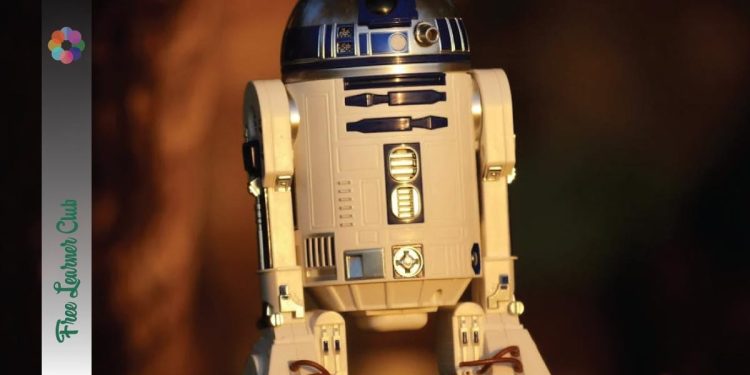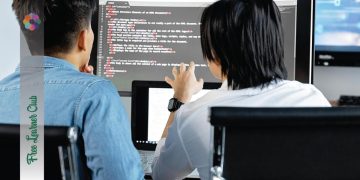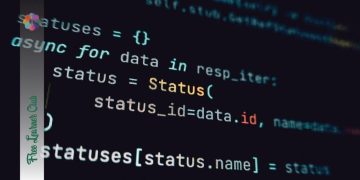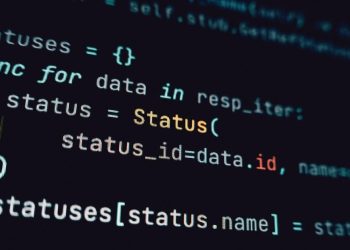Artificial intelligence (also known as AI) is no longer science fiction, it is part of our daily lives and will play a very significant role in the future of global technology.
The meaning of the term artificial intelligence has been a matter of debate for many years and many definitions have appeared on the subject. However, there is still no exact and accepted definition, as it is a very generic term in the world of computing.
We could say that it is any technique that allows computers to make sense of data in the same way as humans do. It does not aim to replace or reproduce the functioning of the human brain, but rather to expand its capabilities.
What is sought with AI is to select the strengths of humans, together with the computing capacity of machines, to achieve collaborative solutions and finally obtain a more natural interaction between humans and machines.
Artificial intelligence is the scientific field of computer science that focuses on the creation of programs and mechanisms that can display behaviors considered intelligent. In other words, it is the concept that summarizes that machines have the ability to think like people, learn autonomously or semi-autonomously from large databases (Big Data), identify patterns and trends, and make predictions quickly and accurately.
By integrating predictive analytics and other AI techniques, we can make our everyday lives smarter. How? Here are some examples:
- Smartphone assistants (such as Siri or Cortana), by using natural language processing, function as true personal assistants.
- Applications such as Facebook, Google Photos, the iPhone gallery system or Instagram suggest grouping photos based on facial recognition of the image, geolocation, and theme.
- With marketing automation, many e-commerce sites offer exclusive product recommendations based on shopping carts and interest patterns. Just like TV and movie platforms like Netflix, HBO, or Amazon Prime, they suggest TV shows and movies you might like based on data obtained from previous viewings (themes, group trends, etc.).
Artificial intelligence is increasingly becoming an implicit part of our lives, and at the same time, the job market for professionals trained in STEM education (the acronym for Science, Technology, Engineering, and Mathematics in English) is expanding.
Levels of Artificial Intelligence
- Strong AI: We can see this level as the most futuristic and closest to science fiction films. This type of artificial intelligence attempts to simulate and surpass human beings to the point of achieving systems with their own consciousness and capable of solving any problem. It would completely replicate human intelligence to the point of surpassing it.
- Weak AI: On the other hand, Weak AI is capable of studying and solving defined and limited reasoning problems. Most of the AI currently used is at this level since it is responsible, as we have mentioned, for solving specific problems. Many times they can be solved in a better way than a human would. It is at this level where we find the most common algorithms in machine learning or deep learning AI.
Artificial Intelligence through time
Although it may seem like a very futuristic and modern concept, more like something out of science fiction films, AI was actually formalized as such in 1950 thanks to Alan Turing.
Turing was a British mathematician, logician, computer scientist, cryptographer, and philosopher. He is considered one of the fathers of computer science and the precursor of modern computing because of the instrument he invented, the Turing machine (a device that manipulates symbols on a tape according to a table of rules).
In 1956, a group of scientists (John McCarthy, Marvin Minsky, and Claude Shannon) met to celebrate the Dartmouth Conference, at the private university of Dartmouth College, in Hanover, USA. It was at this event that the concept of “the science and ingenuity of making intelligent machines, especially intelligent computing programs” was baptized as Artificial Intelligence.
A decade later, in 1965, Joseph Weizenbaum of MIT created ELIZA, the first conversational bot. It was created to trick a human into thinking they were talking to someone else.
Another MIT scientist, Ian Horswill, created the first mobile robot in 1993. He named it Polly and it was able to move at animal-like speeds using computer vision for navigation.
In the 1990s, large technology companies decided to invest heavily in AI research. Intelligent agents also emerged, entities capable of perceiving the environment, processing perceptions, and responding or acting in the environment in a rational manner, which would later lead to the creation of chatbots or virtual assistants.
One of the key events in the history of artificial intelligence was undoubtedly the second match between Deep Blue (an IBM computer) and Garry Kasparov (world chess champion from 1985 to 2000) in 1997, where the computer managed to beat the chess Grandmaster.
Artificial Intelligence in the 21st Century
During the first decade of the current century, the ALICE (Artificial Linguistic Internet Computer Entity) program won the Loebner Prize for the most human Chatbot. It was also during the first decade that TiVo, the first recommendation technology, appeared.
Years later, in 2011, large multinationals such as Apple, Google, and Microsoft launched mobile recommendation applications onto the market.
The future of artificial intelligence
The future always produces uncertainty and in a field as controversial as this, there is a lot of speculation. But the Future of Humanity Institute, the interdisciplinary research center at the University of Oxford, has carried out a study with 352 scientists and researchers who are experts in AI and has extracted some predictions that seem likely to come true:
- By 2024, artificial intelligence will surpass human intelligence in translating languages.
- It is believed that by 2026 machines will be able to write text comments better than high school students.
- From 2027 onwards, truck driving will be safer if it is done by a machine than by a person. The accident rate will be significantly reduced.
- AI in commerce will surpass human salespeople by 2031.
- By 2049, machines with artificial intelligence will be able to write best-sellers. Can you imagine buying a book written by a robot?
- Entering the operating room will be much safer in 2053, when robots will be able to perform surgeries.
- It is even predicted that by 2057 they will be able to carry out their own scientific research.
And although many predict a great evolution of AI in the next 40 years, due to the acceleration of the development of this technology, the truth is that no one can guarantee it 100% and we will have to wait to see how it evolves. Exciting, right?



















